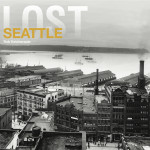A many-layered novel full of outstanding ideas from the mind of Philip K Dick.
So, what's it about? For this book, despite its relative brevity, that's very difficult to answer.
On the surface it's about the struggle between a sham US government of the near future and the engineering and drug cartels that enable it to remain in power. There is so much more going on though, that the reader can easily extrapolate and spend time dwelling on this book, especially when coupled with concepts from other novels written around the same time (1963).
For example, although the title of the book is "The Simulacra," the only androids that appear as characters in this book are a family ready to accompany settlers to Mars - a family with the conversational ability of parrots. That includes the president of the USEA (US of Europe and America), one of a series manufactured by a German (53rd state of USEA) engineering firm and literally a puppet used to keep the First Lady in power. The First Lady herself though is only an actor playing the role written for her by a shadowy council, which was created by some branch of the government to maintain stability. In other books he might take this one idea and have the characters talk at length about the implications. In "The Simulacra," though, the more we find out about what's going on, the less time we or the characters are left to consider the relevance.
Time travel is another concept central to the story that is described thoroughly but discussed sparingly. Of course if a time travel machine exists in the future, it will be in the hands of government. And of course it will be used to maintain power. Interestingly, seeing the future is apparently a mixed bag. In reality you are able to explore alternate futures and determine likelihood of outcomes and cause of outcomes. It's all very time-consuming (!) and tiresome, though. In the end human error and prejudice overwhelms this god-like ability.
There is one idea that is at the forefront of the entire novel: the haves versus the have-nots. Interestingly, the most important "have" is knowledge, not money. Social status in this future is essentially determined by how many state secrets you are privy to. The common people ("Be") are those who don't know what's going on. Knowing even one secret pulls you out of that morass and into a special brotherhood ("Ge"). Brothers Chic and Vince Strikerock serve as a contrast. Chic holds an important position at his company, and makes enough money to live at the top of his building. Vince is a simple engineer and lives low in the building, but he works for a company with a government contract and is therefore Ge. Vince then also holds a cherished job in the building, checking identification at community meetings. Although Be characters express anxiety about losing their jobs and becoming homeless and part of the "lowest of the low," knowledge - or data - is much more vital to their sense of identity.
I'm really itching to read a book ABOUT Philip K Dick now.
Concepts tossed around and explored either not enough or not at all:
- The meek shall inherit the Earth
- Digital versus analog: what is quality
- Organic electronics
- Benevolent alien lifeforms, driven to extinction like dodo birds
- Extrapolation of closed communities and condominium mega-complexes
- What action would have saved millions of Jews from dying at Nazi hands?
- The treacherousness of making a deal with the devil
- Artistic success determined by a few elite, but not tied to popular acceptance
- Regressive mutation
- Post-nuclear mutations leading to super-human powers
- Low bar for marriage and divorce
- Changed relationships between men and women in this matriarchal society
- Mind control through television
- Insidious, living advertising
- Frontier living as an escape from collapsed lives and overbearing society
- Desolation of space exploration and settlement
- Telepathic/empathic robots that tell you what you want to hear or convince you that their dreams are yours
- Life without therapy
- Telekinetic musicians
- Used-car lots selling rockets to Mars
- Uncontrollable revolutionary elements even in an all-knowing, all-powerful state
- Psychosis and telekinetics being a bad, uncontrollable mix
- Homelessness as a common result of failure
- Individuals unable to control events around them
One last comment. The artwork on my edition of the book (1983) is totally irrelevant! Not only that, but the artwork from We Can Build You, with a simulacrum of Hitler on the cover, seems much better suited, though still not reflective of the actual story. This edition has a picture of a space station with a robot hand grabbing it. HUH?

